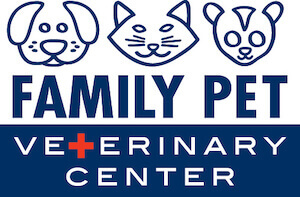Are you planning to visit a local dog park so your canine companion can blow off some steam? Dog parks are perfect for exercising, socializing, and bonding with your pet. It's not all fun and games, though. Every dog park has rules and regulations to keep all visitors — canine and human — safe. Being a responsible pet parent means following those rules and practicing proper dog park etiquette.
As your dog's veterinarian, we'd hate to see them get hurt or inadvertently injure another pet or human. It's up to you to mind your manners and ensure your canine companion does the same. In this blog post, we're sharing some dog park etiquette tips to make your next trip to the dog park fun and safe for everyone. Let's go!
Put Your Phone Away
Do you pull out your phone as soon as you release your dog for some off-leash play? If so, it's time to break that habit. Texting friends or scrolling through social media might not seem like a big deal, but doing so puts your pet at risk. It only takes seconds for something to go horribly wrong, and you may not have time to intervene if you're busy staring at your phone. Put it away so you can watch your dog and other pups in the park.
Watch for Signs of Impending Trouble and Don't Take Unsocialized Dogs to The Dog Park
Even the best, most well-behaved dogs can have bad days or be provoked by unfamiliar pets and people. Pay attention, and make sure your dog minds their manners with others. Rude behaviors like chasing, humping, body slamming, etc., indicate that it's time to take a break or head home for the day. Be mindful of excessive barking, too. In addition to annoying other pet parents, your canine companion's constant barking could trigger aggression in other dogs. While visiting dog parks with your young dog can be a beneficial way to socialize them, not only can an unsocialized dog become aggressive due to fear of the commotion, you should not take your dog to the dog park if they do not get a long well with other dogs.
Stay in the Specific Areas Assigned For Your Dog's Size
Most dog parks have specific areas that are set up for your dog based on size. If you have a smaller dog it's recommended to stay in the small dog side of the dog park. If you choose to enter the large dog area with your small dog, do so at your own risk. You could run into issues with larger dogs that aren't used to or don't play well with dogs smaller than them and you could put your small dog at an increased risk for injuries. Keep your large dogs out of the small dog side of the dog park. Every dog is different and some small dogs don't do well with dogs larger than them and bringing your large dog into their area can cause unnecessary stress for the other dogs trying to enjoy the dog park as well.
Clean Up After Your Dog
Be prepared to pick up your dog's waste and dispose of it properly. While many dog parks have stations with bags, we recommend bringing your own to be on the safe side. No one wants to step in a disgusting mess while trying to have fun with their dog. Plus, leaving messes behind is unsanitary and could make other dogs (or even people) sick.
Leave Your Dog Home if She's in Heat or Better Yet, Spay and Neuter Your Dogs.
Unspayed females don't belong in dog parks when they're in heat. Doing so risks pregnancy, and a female dog in heat can distract other dogs and cause fights and intact males have a higher chance of showing aggressive behaviors, It's just not worth the risk. If you want to be able to take your dog to the park whenever you please, we strongly recommend having your pets spayed and neutered before doing so.
Keep a Leash With You at All Times
Don't shove your dog's leash in a bag or leave it sitting somewhere while you are in the park. Keep it close at hand in case you need to quickly remove your pet from a situation involving an aggressive or otherwise unpleasant dog. Having the leash handy allows you to control your dog better if they exhibit bad manners.
Bring Your Own Water Dish and Water
Many dog parks have water bowls and water sources available to keep your dog hydrated while they play. Sharing water bowls can easily transfer illnesses and sometimes those water sources aren't functioning. To be on the safe side always have water available to give your pet to help them avoid dehydration while playing. If you don't want to carry around a large water dish consider trying a pop-up water bowl. Many of these dishes come with a clip to allow you to hook it onto a belt loop or leash for convenient carrying.
Don't Bring Food Into the Dog Park
Dog food, treats, and people food don't belong in dog parks. While some dogs have excellent manners during meal and snack times, others don't. Some may behave aggressively if they know you or your dog has food. If your canine companion usually receives a treat after doing their business or following a command, give them pets and verbal praise instead. Food and treats aren't the only ways to reward your furry friend!

Leave Young Kids at Home
Bringing a young child — especially an infant or toddler — to a dog park is a serious safety risk. Dogs can easily knock small children over while playing. Plus, those who aren't used to kids or have strong prey drives could become aggressive and cause serious injuries. If that happens, your child could develop a life-long fear of dogs or experience lasting problems due to their injuries. And the offending dog may lose their life. For everyone's safety, leave the kiddos at home when going to the dog park.
Make Sure Your Dog Has a Well-Fitting Collar and Identification
Off-leash dog parks have fences, but that doesn't mean that escape is 100 percent impossible. It only takes seconds for a dog to dart out of an open gate. Protect your four-legged best friend by ensuring they have a well-fitting collar with identification tags every time they visit a dog park. Having your dog microchipped is a good idea, too, and can help you reunite with your dog if they ever get lost
Keep Them Up-to-Date on Vaccinations and Preventatives
If your dog isn't current on vaccinations, don't take them to a dog park. It's that simple. Unvaccinated dogs are susceptible to disease and could make other pets sick.
Before visiting a dog park, vaccinate your dog against several common illnesses, including:
- Rabies
- Parvovirus
- Distemper
- Bordetella (Kennel Cough)
- Canine Influenza
We also recommend keeping your pup on an effective flea, tick, and heartworm preventative year-round. They should also have their stool checked annually for intestinal parasites.
Talk to Your Veterinarian
It's never a bad idea to consult your dog's veterinarian before taking them to a dog park for the first time. As your dog's doctor, we can ensure they're up-to-date on vaccinations and free from health problems. Plus, we'll help you determine whether your canine companion's temperament suits that type of setting. Contact us today to schedule an appointment!
